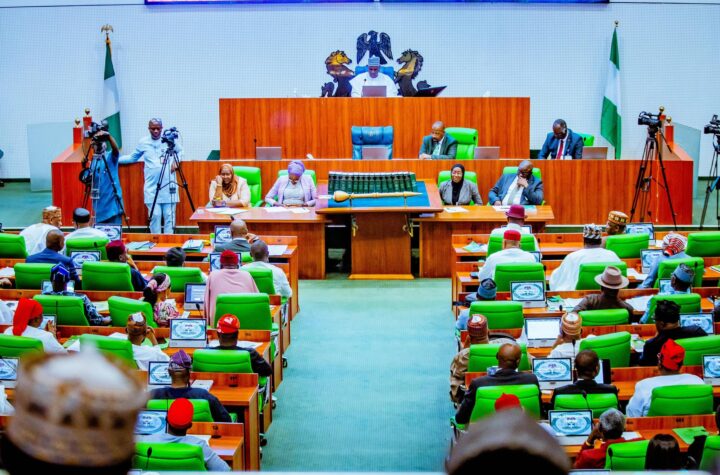On Tuesday, members of Nigeria’s House of Representatives voted against a bill that proposed rotating the office of the President and Vice President among the country’s six geopolitical zones.
The bill, intended as a constitutional amendment, was among seven presented for consideration but failed to gain enough support during debate.
Despite setting aside normal procedures to allow members to speak on any of the bills, the focus quickly turned to the rotational presidency proposal.
Many lawmakers expressed concerns that including zoning in the constitution could worsen regional and ethnic tensions rather than promote unity.
Deputy Minority Leader Aliyu Sani Madaki argued that the Federal Character Commission already ensures fairness in public office appointments, making the proposed amendment unnecessary.
He added that political parties are already equipped to ensure inclusive representation during elections.
Other lawmakers, like Sada Soli and Shina Oyedeji, feared the bill could encourage tribal and regional agitation, with Oyedeji questioning how individual states within a zone would be prioritised.
Bello Mohammed El-Rufai raised concerns about succession, asking what would happen if a president died in office.
Olumide Osoba said forcing parties to select candidates based on geography would be undemocratic, while Clement Jimbo and Minority Whip Ali Isa supported the bill, saying it could help correct historical injustices and ensure fairness.
Six other constitutional amendment bills were also rejected, including:
Transferring the power to register and regulate political parties from INEC to a new Registrar General.
Establishing independent auditors-general for local governments and the FCT to improve financial oversight.
Creating Ughelli East Local Government Area in Delta State.
Increasing the number of Federal High Court judges.
Expanding the Federal High Court’s jurisdiction to include shipping and inland waterways.
Allowing the National Judicial Council to set salaries and allowances for judicial officers.
Although all seven bills were rejected, the House agreed to reconsider them individually during Wednesday’s plenary session.




















